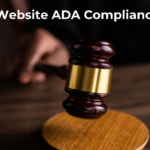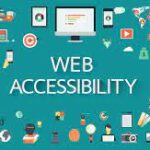A higher education digital accessibility lawsuit In the rapidly evolving digital era, ensuring equal access to education for all students has become an imperative concern. With an increasing emphasis on digital resources in higher education, the issue of digital accessibility has gained significant attention. As a result, a rising number of higher education digital accessibility lawsuits have emerged. The focus has shifted on the importance of inclusivity in educational settings.
Making the content on your website completely accessible to people with disabilities is the most appropriate thing to do. It will benefit current and prospective students, introduce diversity to college or university campus. Moreover, it helps higher education institutions remain legit in the competitive marketplace.
Why Do Higher Education Organizations Get Sued?

Higher education organizations find themselves facing lawsuits related to digital accessibility for a variety of reasons. Higher education digital accessibility lawsuits occur when the right to equal education is denied due to inaccessible digital content. Institutions must comprehend the underlying reasons behind these lawsuits to proactively address accessibility concerns and minimize legal risks.
Reasons for Higher Education Digital Accessibility Lawsuits
One major reason why higher education organizations face lawsuits is the failure to comply with accessibility standards and guidelines. Institutions that neglect to ensure their digital resources are accessible to individuals with disabilities can be held liable. Inadequate considerations for features like screen reader compatibility can create barriers for students with visual impairments or other accessibility needs.
Furthermore, a lack of awareness and training among faculty and staff regarding digital accessibility can contribute to legal challenges. Educators lacking awareness of accessible content and lacking the necessary knowledge and tools can inadvertently create accessibility gaps. Institutions must invest in comprehensive training programs to ensure faculty members grasp their role in advancing digital accessibility.
Institutions must promptly respond to students with disabilities who raise concerns about inaccessible digital content or encounter ongoing accessibility barriers. Failure to address these issues can signal negligence on the part of the institution, potentially resulting in legal consequences.
Moreover, the legal landscape surrounding digital accessibility in higher education has evolved significantly in recent years. The Americans with Disabilities Act (ADA) and Section 504 require educational institutions to provide equal access to programs and services. Courts have increasingly recognized digital platforms as an extension of educational services, emphasizing the need for accessibility compliance. Institutions that do not prioritize digital accessibility may face legal ramifications due to these legal frameworks and their interpretations.
Recent Higher Education Digital Accessibility lawsuits
Higher education institutions are currently experiencing a surge in higher education digital accessibility lawsuits during 2023. The Department of Justice takes a firm stance when it comes to issues concerning education. The recent ruling in the DOJ vs. UC Berkeley case serves as a clear indication of this.
For colleges and universities, it is crucial to check if their websites have not undergone audits and achieved compliance. The recent lawsuits demonstrates that these legal actions encompass institutions of various sizes, from small colleges to renowned brands. This trend has been consistent over the past few years. The time to act is now, to ensure website ADA compliance and avoid lawsuits in the ongoing academic year.
Higher education digital accessibility lawsuits aren’t just a threat. They happen regularly
and it could happen to your institution. Consider these active lawsuits and settlements:
University of California, Berkeley
The Department of Justice reaches a settlement with UC Berkeley to make its online content accessible to people with disabilities.
Milagros Senior vs. Creighton University
Creighton University is a private Jesuit research university in Omaha, Nebraska. The class action complaint was filed on September 22, 2022, alleging that the website is not accessible.
Notre Dame of Maryland University, Inc.
Notre Dame of Maryland University was founded in 1895 and is headquartered in Baltimore, Maryland. The lawsuit alleged that the website is digitally inaccessible.
Cost of ignoring Digital Accessibility at Higher Education Institutions
- Face enforcement actions by the Office of Civil Rights (OCR) or class action lawsuits
- End up paying hundreds of thousands of dollars in settlements, payouts, and damages
- An OCR judgment against a university can result in loss of federal research, grant and scholarship funding
- After the damage to reputation the university ends up implementing digital accessibility roadmap anyway
- Failing to live up to the commitment to provide inclusive learning to all
About codemantra
codemantra helps higher education institutions make their digital content accessible to students with disabilities. The platform accessibilityInsight makes PDFs accessible and compliant with PDF U/A and WCAG 2.1 Level AA standards. Our accessibility compliance services helps to make documents in multiple formats accessible to students with disabilities.
codemantra’s accessibilityInsight automates digital document processing using artificial intelligence. The platform identifies and extracts document structure to achieve compliance as per PDF U/A standards.
codemantra offers a free compliance check for your documents. Use this link & sign up to check if your documents are compliant: https://aiqa.codemantra.com/#/trial
How codemantra helps higher education institutions achieve compliance?
- Audit, assess, and make digital information accessible in any format – PDF, Excel, Word, PowerPoint, and ePub.
- 100% compliance with Federal and State Laws – ADA, Section 508, WCAG 2.1 Level AA.
- Eliminate disproportionate burden using our scalable, AI-driven modules.
- Create accessible course materials – Make all course material accessible and compliant as per accessibility guidelines.









